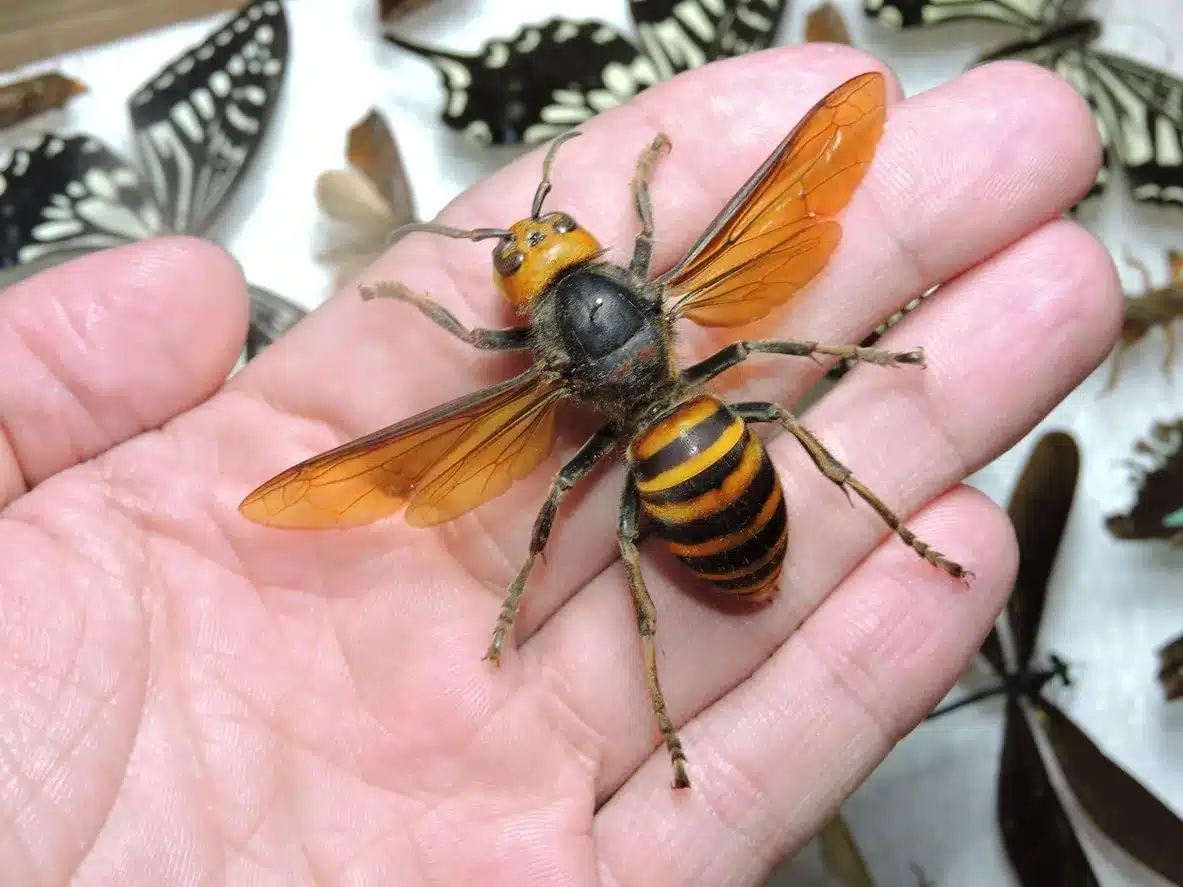The Threat of Asian Hornets in the UK: What You Need to Know

Introduction
Asian hornets (Vespa velutina) have emerged as a significant threat to native wildlife and the environment in the United Kingdom. Since their first sighting in the UK in 2016, these invasive predators pose risks not only to honeybees but to the biodiversity of local ecosystems. Their rapid spread has raised concerns among environmentalists, beekeepers, and agricultural officials alike, underscoring the importance of monitoring their movements and understanding their impact.
Background on Asian Hornets
Originally from Southeast Asia, Asian hornets were accidentally introduced to France in 2004 and have since expanded across Europe. Recognised by their distinctive yellow and black markings, they are smaller than native hornets, measuring around 2-3.5 cm in length. Asian hornets primarily feed on other insects, including honeybees, which they catch and take back to their nests to feed their larvae. This predation can significantly weaken honeybee populations, leading to decreased pollination and affecting agricultural productivity.
Recent Developments
In recent months, reports of Asian hornet sightings have increased across various regions of the UK, with significant populations detected in areas such as the Channel Islands, Kent, and Surrey. Beekeepers have reported alarming losses in honeybee colonies attributed to the predatory behaviour of these hornets. In response, local councils and beekeeping associations have intensified their monitoring efforts, setting up traps and educating the public on how to identify and report sightings.
The UK government has also launched initiatives to enhance biosecurity measures aimed at controlling the spread of Asian hornets. This includes increased funding for pest control initiatives and collaboration with neighbouring countries to track their movement across borders. Citizens are encouraged to report any potential hornet nests to prevent further expansion of this invasive species.
Conclusion and Future Implications
The presence of Asian hornets in the UK signifies a need for urgent action to protect local ecosystems and agriculture. As these hornets continue to establish their foothold, it is crucial for communities, local authorities, and environmental agencies to collaborate in monitoring and controlling their numbers. Future forecasts suggest that unless effective management strategies are implemented, Asian hornets may pose an even greater risk to the UK’s honeybee population and, by extension, food production and biodiversity. Raising public awareness and understanding of how to handle these insects will play a vital role in mitigating their impact and preserving the delicate balance of the UK’s natural environment.
You may also like

The Eden Project: A Sustainable Hub for Biodiversity

Understanding Mosquera Wolves and Their Conservation Needs
